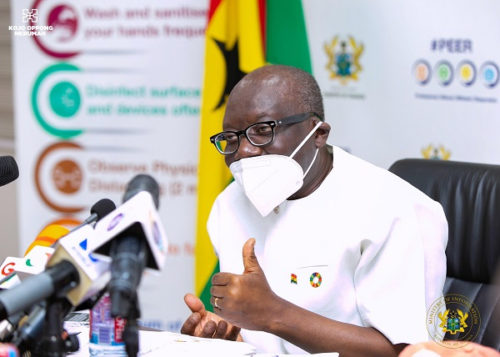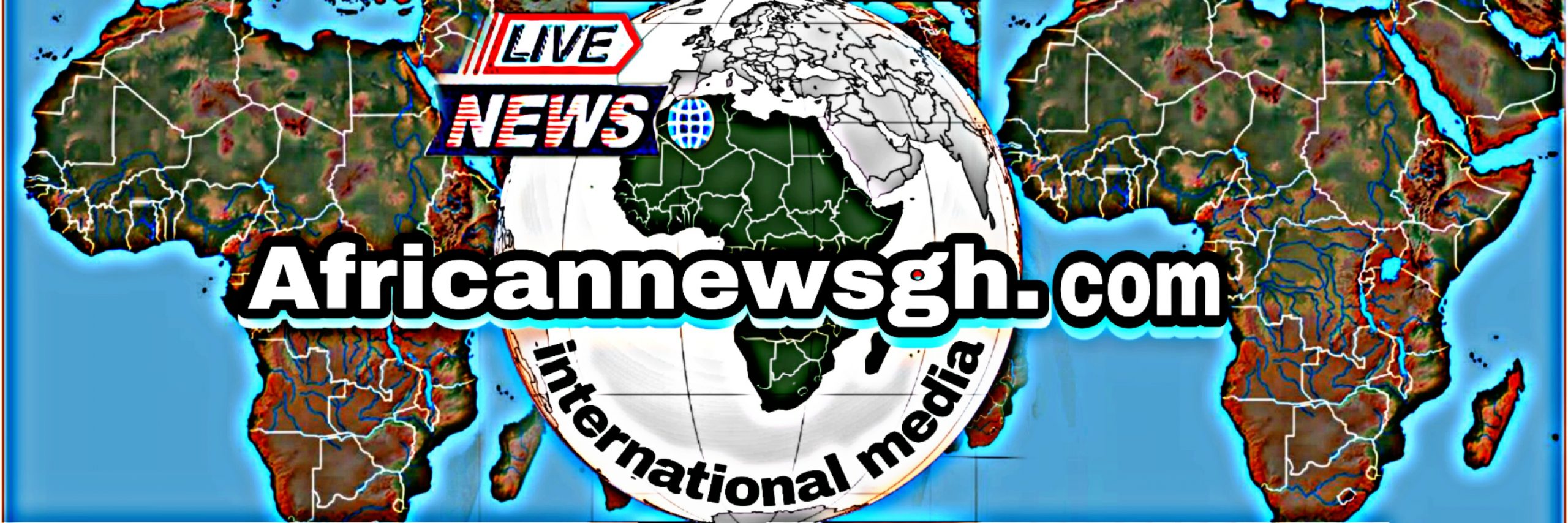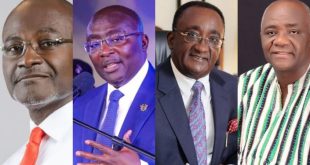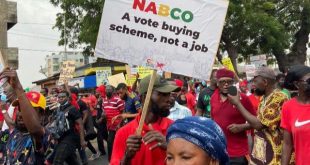
Ken Ofori-Atta, Finance Minister
Last week, President Nana Addo Dankwa Akufo-Addo administration formally responded to widespread agitations within the country as to the current socio-economic circumstances by announcing that it was preparing to implement several interventions to ameliorate the plight of the general populace.
The response came in the form of a press briefing held by Finance Minister Ken Ofori Atta a week ago; instructively held on the Sunday originally slated by the protestors for a demonstration, to ensure that it would make the news at the start of the week, thereby taking the wind out of the sails of the Fix the Country campaign begun a fortnight ago.
Although the police, and then the law courts had stopped the organizers of the campaign from engaging in that public demonstration along the streets of Accra, the shift from a physical protest to a sustained social media campaign obviously had flustered government. Even though the incumbent government won last December’s presidential elections, the controversy that followed it – culminating in a failed electoral petition by the defeated leading opposition candidate, John Mahama at the supreme court – and the loss of its clear parliamentary majority has weakened its position somewhat making the ‘#fix the country’ a potential lever for serious social unrest.
The Finance Minister’s press briefing, which comprised assurances that government has heard what the protestors are saying and an appeal for understanding as to the plight of the government in the face of the severe challenges thrown up by COVID 19 has dampened the intensity of the protests but has not made them go away. Indeed, last week a lot of social media posts were to the effect that they want to see action not just hear promises.
However, there is a general appreciation that government is listening, rather than ignoring the protests, even though, armed with an electoral mandate for the next four years, it could easily have chosen the latter course.
Highly placed sources within the government explain that the protests are being taken very seriously because they are emanating primarily from the country’s youth rather than from the political opposition. This implies that the complaints are genuine, rather than manufactured for political gain by opponents of the incumbent government. Furthermore, the protests are decentralized with no discernible leaders of authority and so they cannot be handled by traditional type negotiations.
The immediate trigger for the protests was the impending fuel price increases and consequent expected new wave of consumer price inflation pressures being set off by the new taxes and levies contained in the 2021 national budget.
To head off this, government’s downstream petroleum industry regulator, the National Petroleum Authority, NPA, announced a reduction on price margins on petrol that effectively translates into a slight reduction in petroleum prices. However commercial transport operators have been pushing for a significant increase in transport fares for nearly a year now – citing the rising cost of non-fuel costs such as the prices of spare parts – and will not be denied now that the new taxes and levies have given them yet another excuse. The general populace, well aware that the ongoing negotiations between commercial transporters representatives and the government will ultimately result in some level of transport fare increases, is already resigned to them and therefore has started protesting ahead of the impending increases.
But the angst actually goes much further, reflecting deeper dissatisfaction with the perceived lack of economic opportunity especially for the youth who are leading the protests.
Consequently, prompted by the failed effort to hold a physical demonstration along the streets of Accra, social media users in Ghana have been adhering to the hashtag #FixTheCountry in droves to pressure the government to improve its citizens’ lives. Among the new movement’s demands are more jobs, no corruption, fewer taxes, and better education.
To be sure though, being a decentralized movement, different participants have different grouses, a situation which makes it difficult for government to prioritize what it should address. The result is that government can only go ahead and try to address Ghana’s economic challenges on a holistic level – which it has been doing all along – albeit with more focus on the fortunes of households and less on key macroeconomic indicators.
The dissatisfaction of the youth, which has been building up for years and has been dramatically worsened by the socio-economic effects of COVID 19 can be summed up Ernesto Yeboah, of the activist group Economic Fighters League, who told DW, the German international news channel last week that the present movement came about out of a feeling among the youth of not being heard by those in charge of the country. “We are hungry. Things are bad. Things are difficult. Life is tough. And it doesn’t make the headlines.”
Only about 10 percent of the graduates of tertiary institutions of learning find jobs within one year after completing school, studies show. This in a country that churns out more than 270,000 graduates every year from public and private universities. Dissatisfaction is bound to grow, and the government is well aware of the tensions especially since more and more users are taking to social media to air concrete grievances.
Government, two Sunday’s ago, therefore responded to the pressure being put on it by the ongoing Fix Ghana campaign through Finance Minister Ken Ofori-Atta who announced that government will, in the coming days, roll out eight new initiatives underlying the COVID 19 Alleviation and Revitalization of Enterprise Support initiative – known simply as Ghana CARES – to fix then economy’s shortcomings.
The Ghana CARES programme aims at instigating a rebound from the economic slump imposed by the coronavirus outbreak, turning the economic recession suffered during the second and third quarters of last year into accelerated, and sustained economic growth of over five percent per annum from this year onwards. The second phase of the programme (which follows a short first phase implemented during the second half of 2020, aimed at stabilizing the economy from the initial effects of COVID 19) is being implemented between 2021 and 2023, and involves GHc100 billion in spending, comprising GHc30 billion in public expenditure and GHc70 billion in private sector financing.
The initiative has received rave reviews from stakeholders for its conceptualization because it has the potential to push accelerated economic growth while allowing government to engage in necessary fiscal consolidation at the same time, by getting the private sector to finance infrastructural projects and the provision of social and economic goods which customarily would have required public expenditure which is no longer available.
However, there are two sticking points in the view of the most vocal – and ostensibly the most enlightened – protestors. One is that detailed plans for private sector participation to the tune of GHc70 billion have not been unveiled and the other is that there is no certainty that the private sector will raise its share of the financing, especially in the current circumstances where, according to the United Nations Conference on Trade And Development (UNCTAD) global foreign direct investment has slumped by 42 percent below pre-COVID19 levels. Although Ghana bucked the global trend last year, attracting US$2.6 billion in FDI, which translated to a 140 percent increase on the previous year, this was more because 2019 was a particularly disappointing year than because 2020 was particularly successful; in 2018 Ghana attracted some US$4 billion in FDI. While Ghana got off to a rip-roaring start for 2021, attracting US$500 million during the first two months of the year, even if this is maintained over the full three years of Ghana CARES initiative it is uncertain whether the locally mobilized investment would be enough to make up the shortfall who regards to the overall private-sector target.
Nevertheless, the government has shown a determination to give it a go.
“First, I am working with the Minister for Water and Sanitation to immediately ensure potable water to areas with felt need, especially in the most urban areas” announced the Finance Minister at his recent press briefing. “Also, I am working with the Ministers of Roads and Highways, Transport and Interior to address congestion along the major highways,” he said.
He continued “Third, we are fast-tracking the implementation of the US$200million Jobs and Skills Programme to enhance job creation significantly. This intervention is designed to facilitate new and expanded private sector businesses to employ a lot more people. This we believe is a more sustainable way to rebuild this economy instead of expanding Government employment schemes.
“Fourth, starting this month, we are rolling over eight additional interventions under the GhanaCARES “Obataanpa” programme. These will be in the Health, Agriculture, Tourism, Trade, Digitization, Science and technology, Housing and financial services.
“Fifth, by the end of July, we will have a new Development Bank that will provide long-term wholesale financing to the private sector through Commercial banks.”
Generally, the protestors appreciate the government’s intentions, as spelt out during the press briefing, but complain that the words fall short of action. Here the worries pertaining to Ghana’s poor track record with regards to successful policy implementation.
Furthermore, they fret that the Finance Minister devoted more time and space in his presentation to the government’s achievements prior to the arrival of COVID 19, the adverse impacts of the viral outbreak and the steps taken to ameliorate them, than to the efforts being made to ‘fix the country’ as demanded by the ongoing protests. This is being interpreted as a passing of blame for the present predicament and an admission that it is beyond the grasp of the government’s powers to change it.
“We can’t pretend that it (the coronavirus pandemic) has not occurred. We have to be clear on how we had to readjust our economic programme to be able to save lives first because the sanctity of life of any citizen cannot be compromised” Ofori-Atta asserted.
To be sure, while the protestors worries are partly true, the government’s position is also largely inevitable. Importantly, Ken Ofori Atta compared the deterioration in Ghana’s economic fundamentals with selected other countries in both the developed economies and Ghana’s peer emerging market jurisdictions, evidencing that Ghana is not alone in its travails.
But the protestors are having none of this. They insist, for example, that Ghana could be doing much better than it is if corruption was reduced. They also insist that government should widen the tax net rather than regularly deepening it with new taxes.
Ironically, it is the administration that is doing more to widen the tax net that is having to deal with this particular complaint. The linking of the Ghana Card now being rolled out with tax administration is a key step towards bringing the vast informal sector into the tax net. But the process can only be done gradually and in the meantime, Ghana has run out of fiscal space already, forcing the government to impose temporary new consumption taxes and special; levies for now.
Another source of worry is the lack of trust and goodwill between some quarters of the two sides.
Government communicator Courage Nobi says he does understand the manifold frustrations of daily life in Ghana. “Post-COVID, post-2020, we’ve run into some very severe difficulties,” he said. “Is it anybody’s fault? No, it’s just the dictates of economics, demand and supply and all the forces that inform prices.” Nobi says the government is doing its best to address the issues.
While the proposed demonstration two Sunday’s ago was stopped by a court at the request of authorities, for contravening anti-coronavirus safety measures active protestors such as Maltiti Sayida Sadick have scoffed at the concept. “In this country, during elections, politicians were campaigning without regard to the COVID-19 protocols. So, we say: lead by example.”
Government supporters in Ghana tried to start a countertrend under the hashtag ‘FixYourSelf’. It was born after a member of parliament, Frank Annoh-Dompreh advised Ghanaians on the social platform Twitter to do exactly that before asking the government to fix the country. The intensity of the backlash forced him to apologize.
Ultimately, economists predict that government will have to ride out the protests since it is simply not in a fiscal position to ‘fix the country’ right now. However, they also blame the government for its own predicament, having given the impression that it could navigate the effects of COVID 19 for its populace without extreme financial stress during the run-up to last year’s general elections. (See Editorial).
Now with the elections won, the government is giving the populace a bill for things it had been told were free prior to the polls. And the populace is not only willing to pay that bill.
Source : Ghanaweb
 African News Best News Portal
African News Best News Portal



